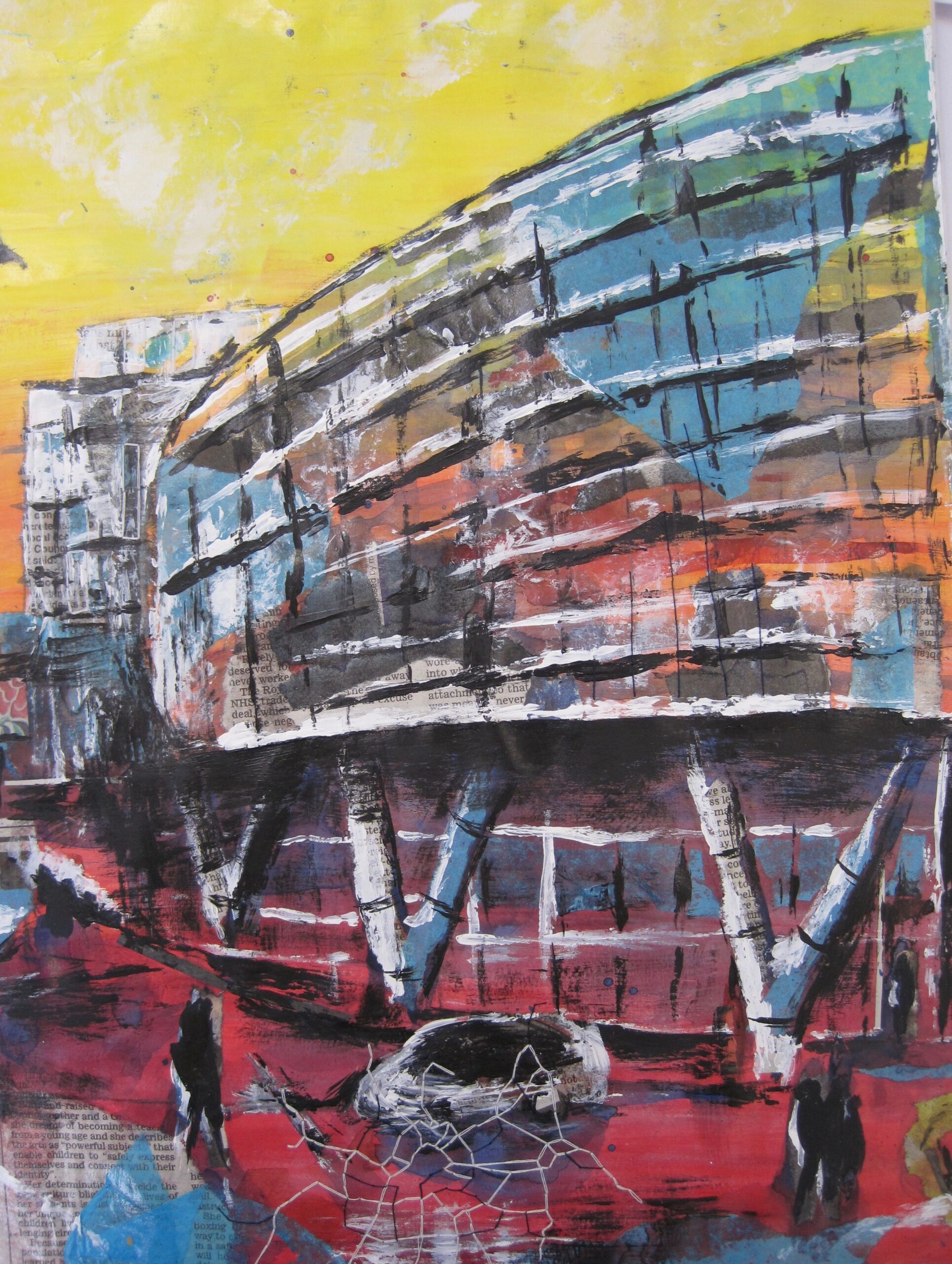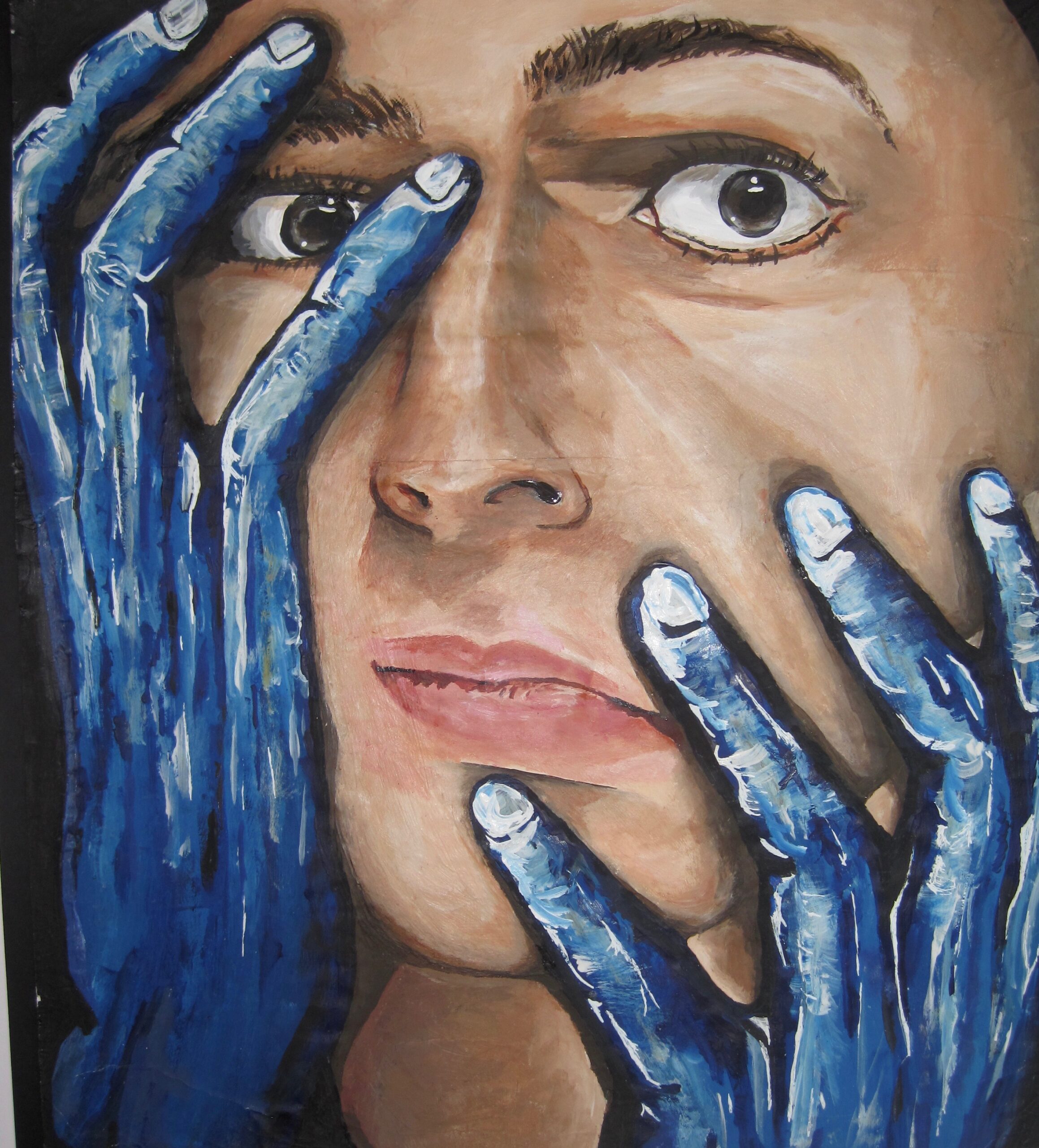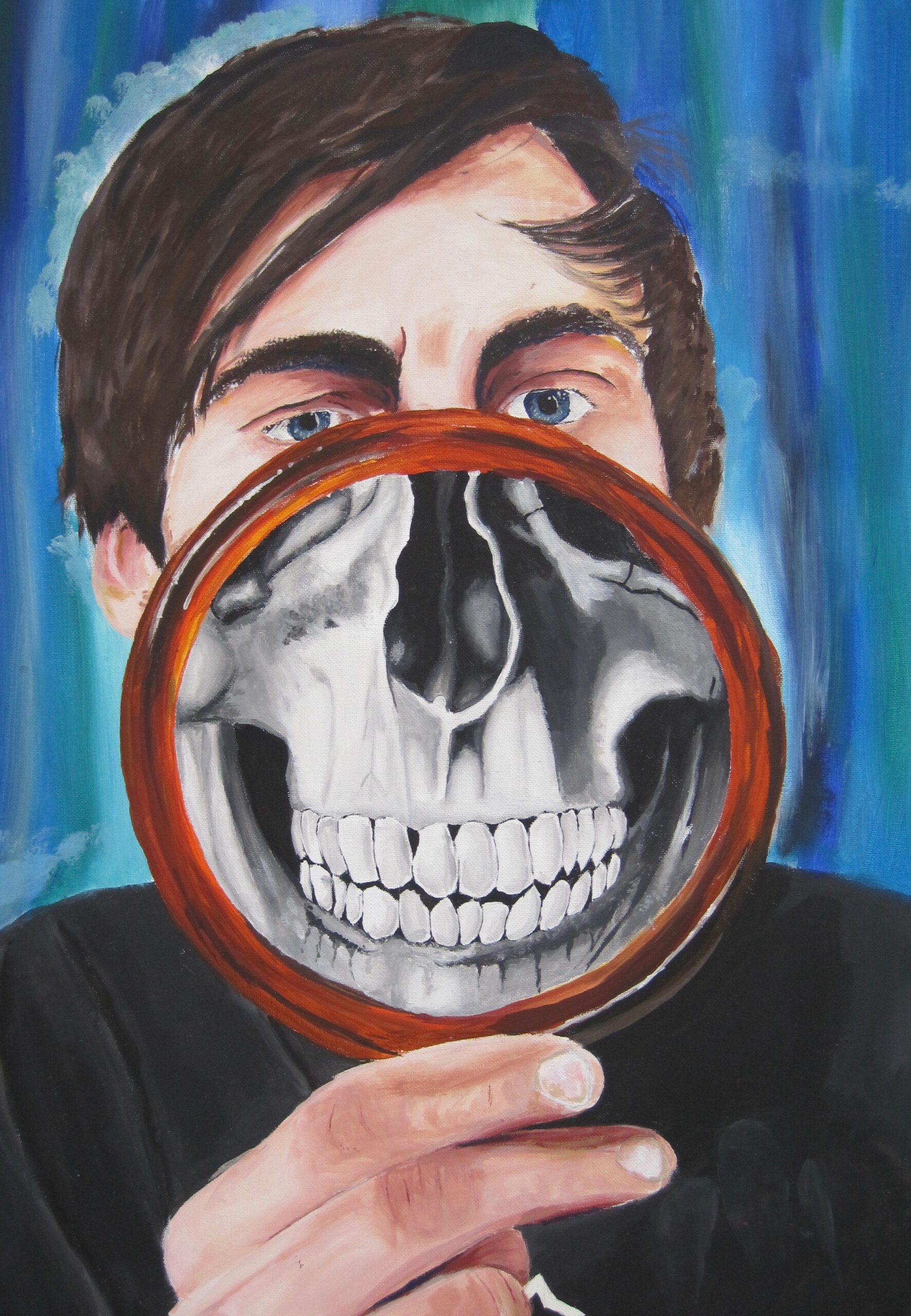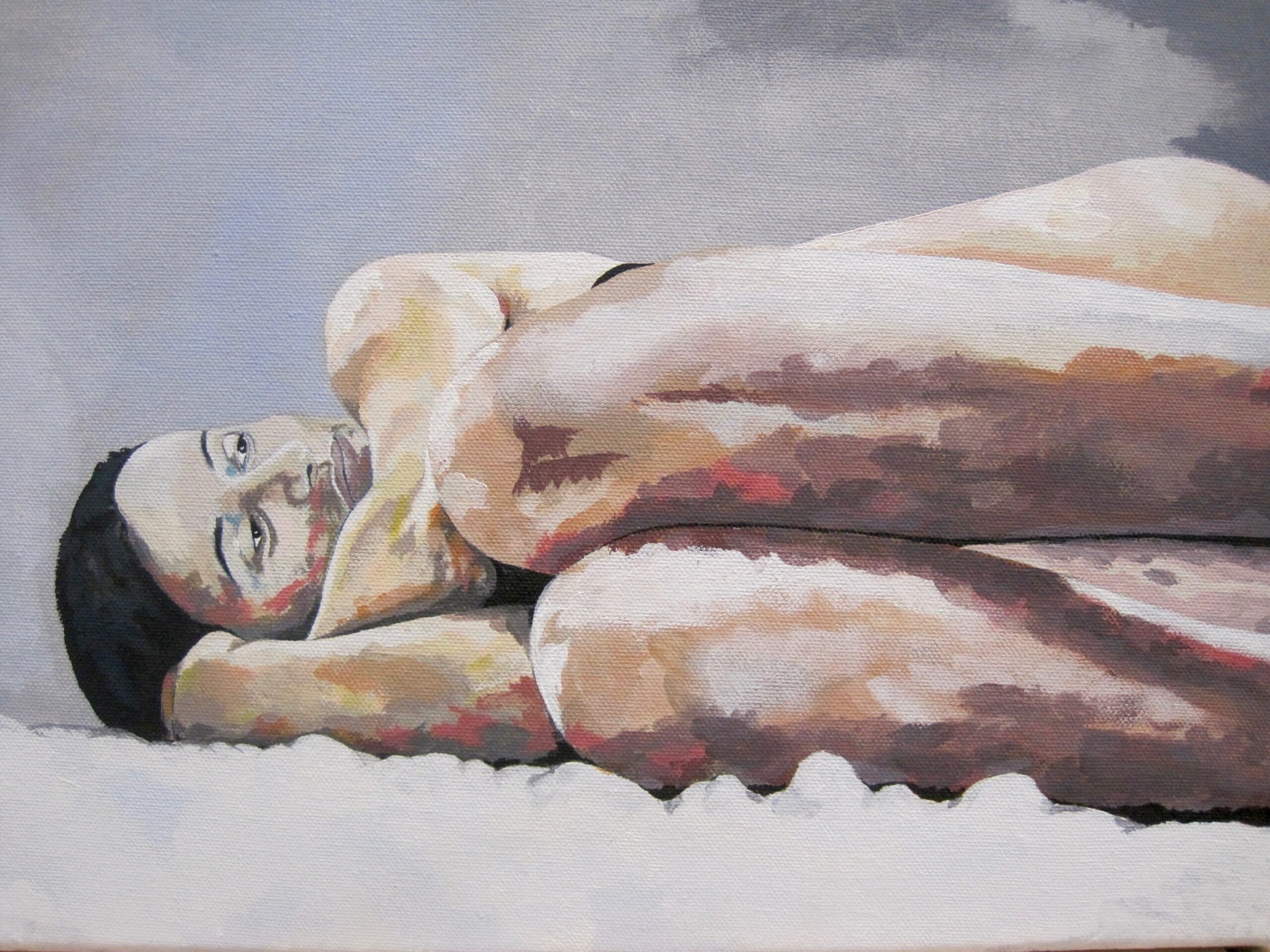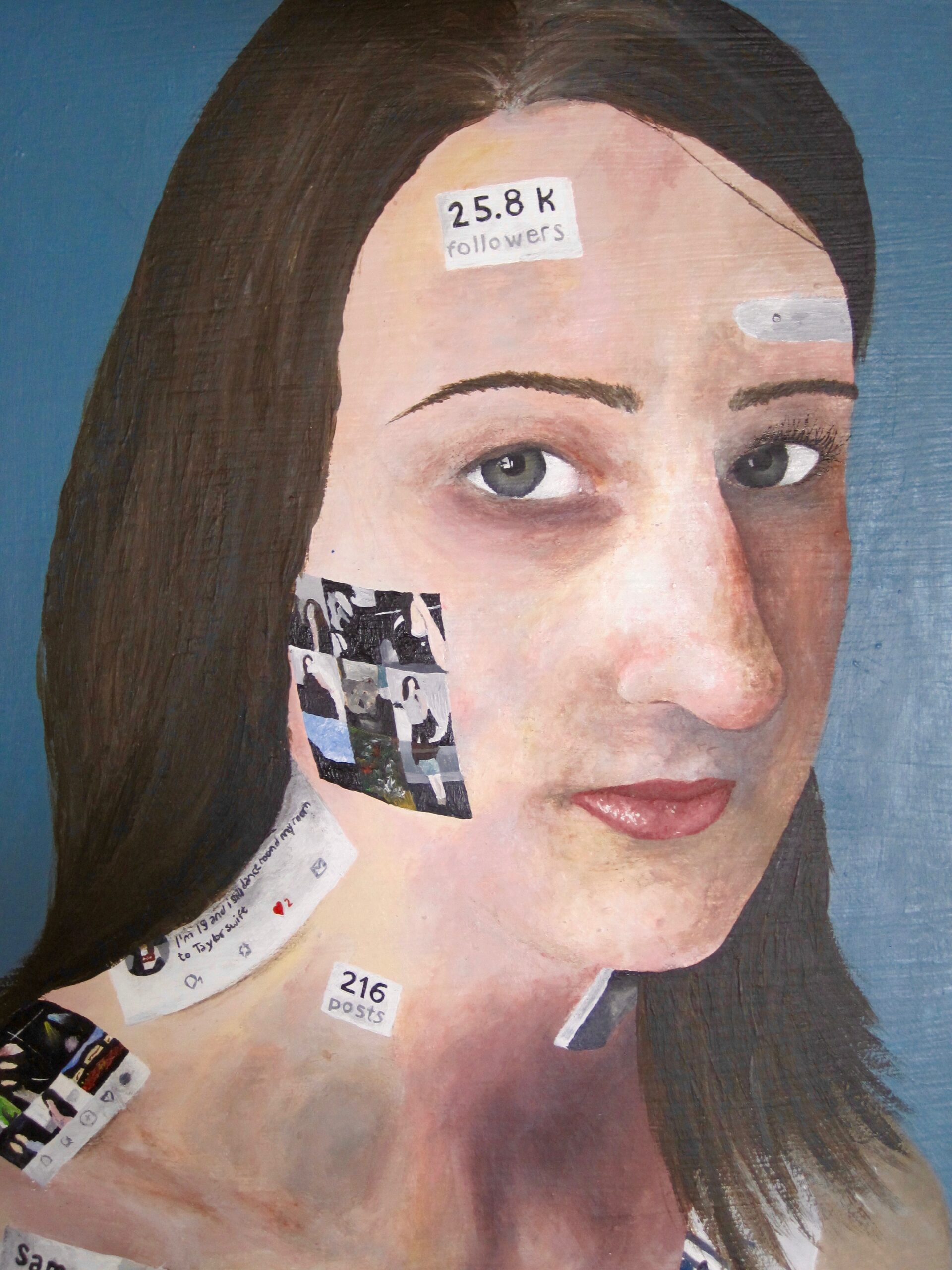Art & Design: Fine Art
Entry Criteria
- Average Point Score: 4.5
- Grade 4 in this subject at GCSE
- English Language GCSE Grade 4
- Mathematics GCSE Grade 4
Examination Board
- AQA
Click here to visit the exam board course page for A Level Art.
Teaching Staff
- Mrs Greenwood
- Mr Leach
- Mrs McManus
- Mrs Cooke
Examples of A Level Work
Students will work on themes set by the teacher, for example portraits, landscape, urban environment and will be taught skills in Fine Art, Graphic Design and Sculpture.
They will keep a sketchbook which documents their developmental work. Students will also be encouraged to study the work of other artists and designers and experiment with ideas and techniques inspired by these artists.
Art combines well with any other subject as it promotes many transferable skills such as creative thinking, research techniques, computer literacy, problem solving and working to deadlines.
There are rich and diverse opportunities across the art and design spectrum, covering:
- Fashion
- Fine Art
- Graphics
- Ceramics
- Interior Design
- Illustration
- Art Dealer
- Jewellery Design
- Photography
- Textiles
- Multimedia
- 3D
- Website Design
- Advertising
- Computer Games Design
- Printing
- Teaching
- Set Design
- Architecture
What do our students say about Art?
Studying Art, both in main school and even more so in Sixth Form, has always been quite free in my opinion. Unlike English or Maths, where you have to follow everything the teacher says directly, in Art you’re given so much more free reign over what you do. That’s probably my favourite thing. For example, I had a project come up not too long ago, and whilst others in my class did drawings of flowers and their friends, I put my own personality into what I was doing and brought my love of pop culture into my work by drawing myself as Joaquin Phoenix’s Joker, and that was completely fine as it fit the overall brief. It’s this kind of freedom that you get that is my favourite thing about studying art.
I wish I had known at the start of the course that going to the Art rooms during my study periods, when there were other classes in there, wasn’t intrusive or weird. It’s not. The younger students that sometimes use the room during their lessons realise you’re doing your work and respect that, I’ve found. It’s not intrusive or distracting. You’re all there to work and make art, and because of that there’s like a mutual respect not to interrupt one another.
When you start Year 12, use your free periods wisely. For the first month or so, I didn’t really use them to study or do anything productive, which is fine if you’ve got nothing else to do, trust me. But then I’d come home and I’d have to do like 3 hours of Art, Psychology and Media homework. It meant I didn’t get to do what I wanted to at home. So, I changed what I used my free periods for. Now I’ll do my homework in them and if I finish early, I can go home knowing full well that I can relax and do my own thing.
I’m also currently studying Media, as I’m quite interested in Film, TV and all that good stuff, and Psychology, because who isn’t intrigued by how our brains work? It’s fascinating.
After Sixth Form, I’m not 100% sure what I want to do. At least not immediately. In the long run, I’d like to work in comics, which – well, it’s kind of obvious how A Level Art helps there. I also just enjoy art. So even if I switch paths, I’m pretty confident that I’ll do just fine because of what I’ve learnt here. I could go into graphic design, thanks to the Photoshop skills I’ve been taught, or go into travel photography, or countless other fields because you get taught a huge range of skills that can be adapted.

Noah's media interest led him to enter the Sky Drama Intergalactic Scriptwriting Competition - his script won him a tour of the Intergalactic set at Space Studios in Manchester.
My favourite thing about Art is there are no limits to what you can do, you can try lots of different styles and techniques and there's no wrong answer. It's a very independent subject which I love. I have the freedom to work how I want, which made me enjoy the subject more.
As you probably know from GCSE, Art can be very time consuming. I wish I had put more time into my sketchbook in Year 12, instead I found myself cramming to get all my work done in Year 13 when had less time! At A Level you need to put a lot of work into your sketchbook to get the best grades, as this is where the majority of your marks will come from. The more you get done in Year 12,the more time you will have in Year 13. I would also say to try doing a lot of big pieces on canvases and explore your own style. Year 12 is the best time to experiment with different medias and techniques to find what you enjoy most and develop your skills as an artist.
After Sixth Form I'm going to study Interior Design at De Montfort University. Art has really helped me to develop confidence in my ideas and abilities; Art always pushed me to be more creative and unique so my work would stand out. Interior Design is more technical than Art but I have learnt skills from my Art A Level that will help me on the journey to becoming a good designer.
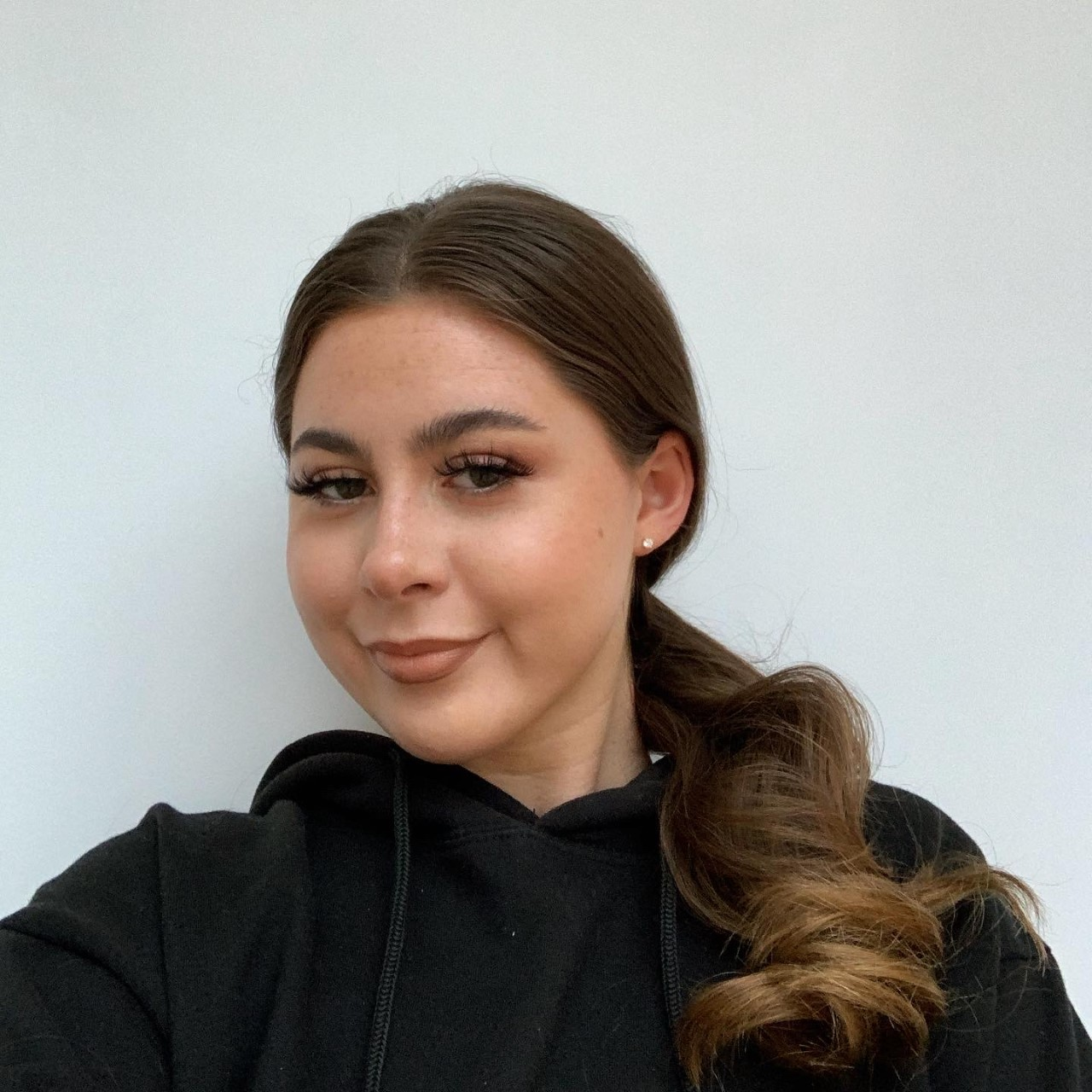
Ciara has a place at De Montfort University to study Interior Design. Her outstanding A Level Art work, alongside her EPQ in Interior Design, helped her to secure the place.
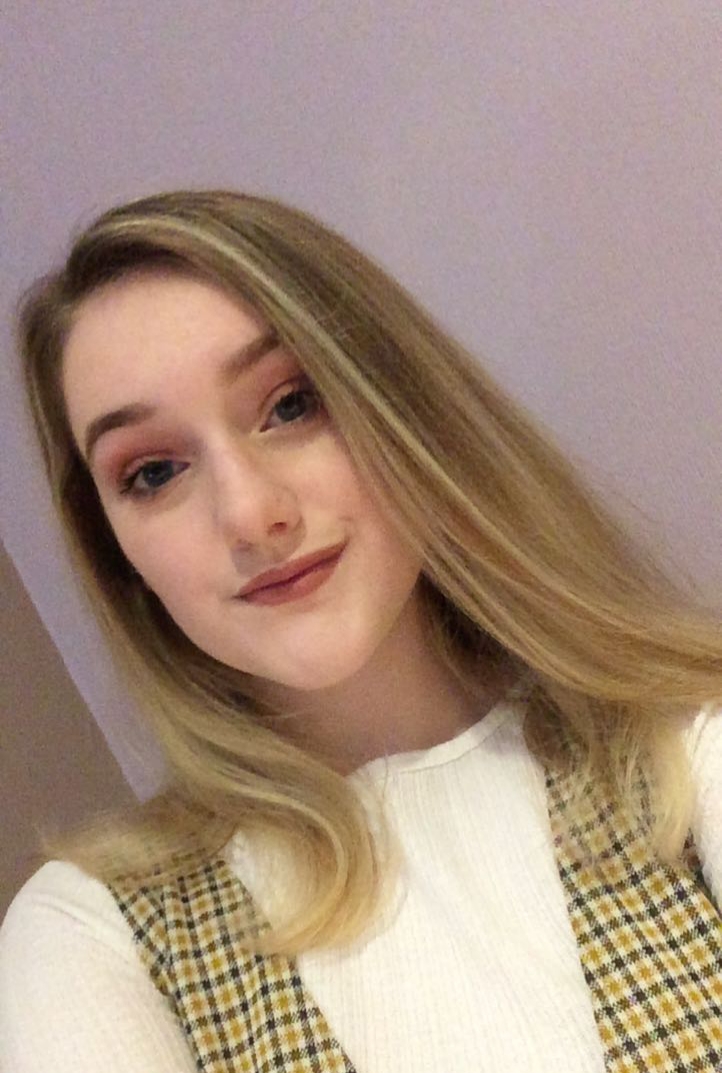
Amber is now studying Biomedical Sciences at the University of Chester. Her Art A Level allows her to be more open to new ideas and look at things from a more creative viewpoint.
One of my favourite things about studying A Level Art was definitely learning how to use a variety of different media and incorporating them into my work in various styles. I personally gravitated towards using pencil typically within my work, but due to the new medias that became available through taking A Level Art, I eventually moved to using media such as oil paint as well. This helped me go out of my comfort zone and explore more ideas to align with the given brief.
When starting my Art A Level in Year 12, I wish I had known to invest in more of my own equipment such as my own set of paintbrushes, paints and a set of artists graphite pencils. Buying simple equipment like this earlier would have allowed me to experiment more and also allowed me to complete my art work for projects at home too, as well as in my frees.
I would advise anyone who has just started studying Art to try new things, push yourself out of your comfort zone and be open to exploring new styles and ways of working. Doing this will allow you to fully explore the briefs given and achieve the best grade you can.
As well as studying Art, I also studied Biology and English Literature at A Level. Since leaving Sixth form, I have gone on to study Biomedical Sciences at the University of Chester. Due to studying Art at A Level, I feel it allowed me to be more open to new ideas and look at things from a more creative viewpoint - which I can now apply to the variety of subjects I explore in university. Furthermore, I have also completed commissions in free time and I intend to keep up with my art in the future.
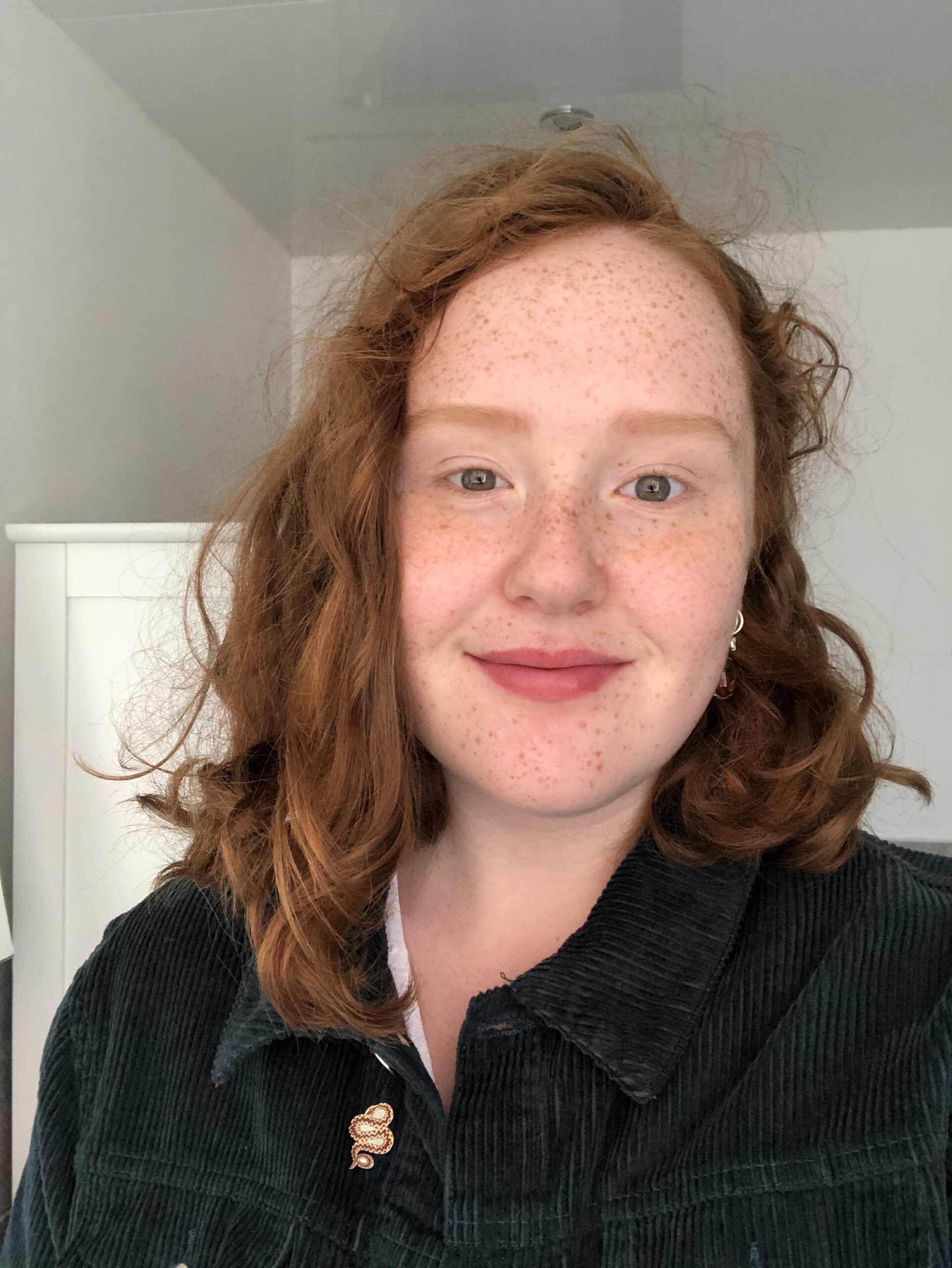
Izzy completed her Art Foundation Year at Manchester School of Art and is moving on to Costume Design at the University of Edinburgh
Taking A Level Art, I could apply my time and effort into a rewarding yet creative subject. The class was small and slightly informal, we listened to music and generally had a pretty fun time whilst still getting the work done. The teachers were supportive and stayed pretty relaxed so throughout both years I was able to develop projects that represented my own progress at a steady pace.
I wish a knew about more art techniques before I started, you’ll pick them up as you go along but showing a wide array of skills and experimentation can go a long way and ultimately leads to stronger project. Getting messy and not knowing where you were going often resulted in the best work, I wish I started doing it sooner.
I also studied English Lit and History, both could get quite essay heavy. So, Art was a great alternative to give me some head space when under a heavy workload. The art room was also often a very quiet, empty space, useful for when I had work to do for all my subjects and it was there pretty much whenever I needed it.
Taking Art at Crompton House really set me up for the future, after Sixth Form I went to Manchester School of Art for a Foundation year, and now I’m about to study Costume Design at the University of Edinburgh.
Advice for future Art students:
Get an easel. Or just bagsy one, you will use them the whole time and make painting way easier.
Spend as many frees as possible in Art; put on music, make a cup of tea and the hours will fly by.
Always start with a mind map, it’s always gets your ideas going.
Keep producing final pieces throughout the whole project, it shows greater development and will get you working out of your sketchpad.

Following her Art Foundation Year at Manchester Met, Abigail is moving on to study Fashion Design.
I liked studying art because the lessons were different to my other subjects, we had a lot of freedom with the subject matter for our projects and lots of independence using the studios when we needed to work or revise for other subjects. I also liked the focus on course work and how there isn’t a written exam at the end. This took lot of pressure off revision for other subjects. The art staff were very supportive in and out of lessons, I am incredibly grateful for the level of help not only in lessons but also with applications for courses after Sixth Form and helping determine the best path for my future.
At the start of Year 12, I wish I knew how much time and work went into the coursework, I sometimes neglected my other subjects without realising because I preferred working on my projects but by Year 13 you learn how to balance out revision and coursework.
Sixth Form goes very quickly even if you don’t notice it, so even if you’re stressed because of revision or UCAS, you’re happy going out all the time, or you don’t know what you want to do when you leave, time will pass quickly so make the most of going to the shops on your frees and start revision sooner than you think you should.
I originally studied Art, Product Design, Maths and History, then after year 12 mocks I dropped History because of the workload of maintaining four subjects. After Sixth Form I did an Art Foundation year at Manchester Metropolitan University, when applying for that course I thought I wanted to be a graphic designer but after studying there, I am now going to university to study fashion design.


